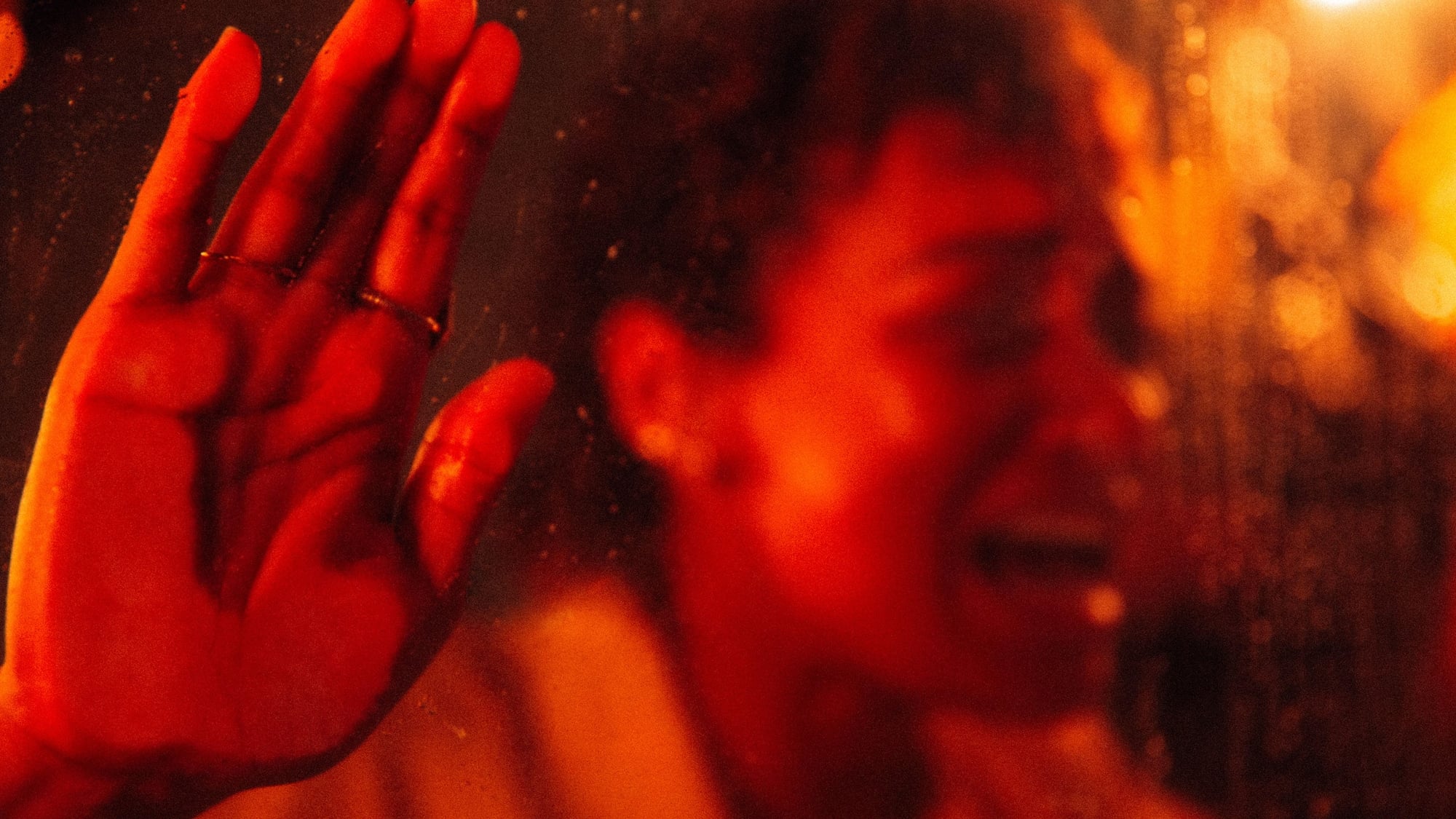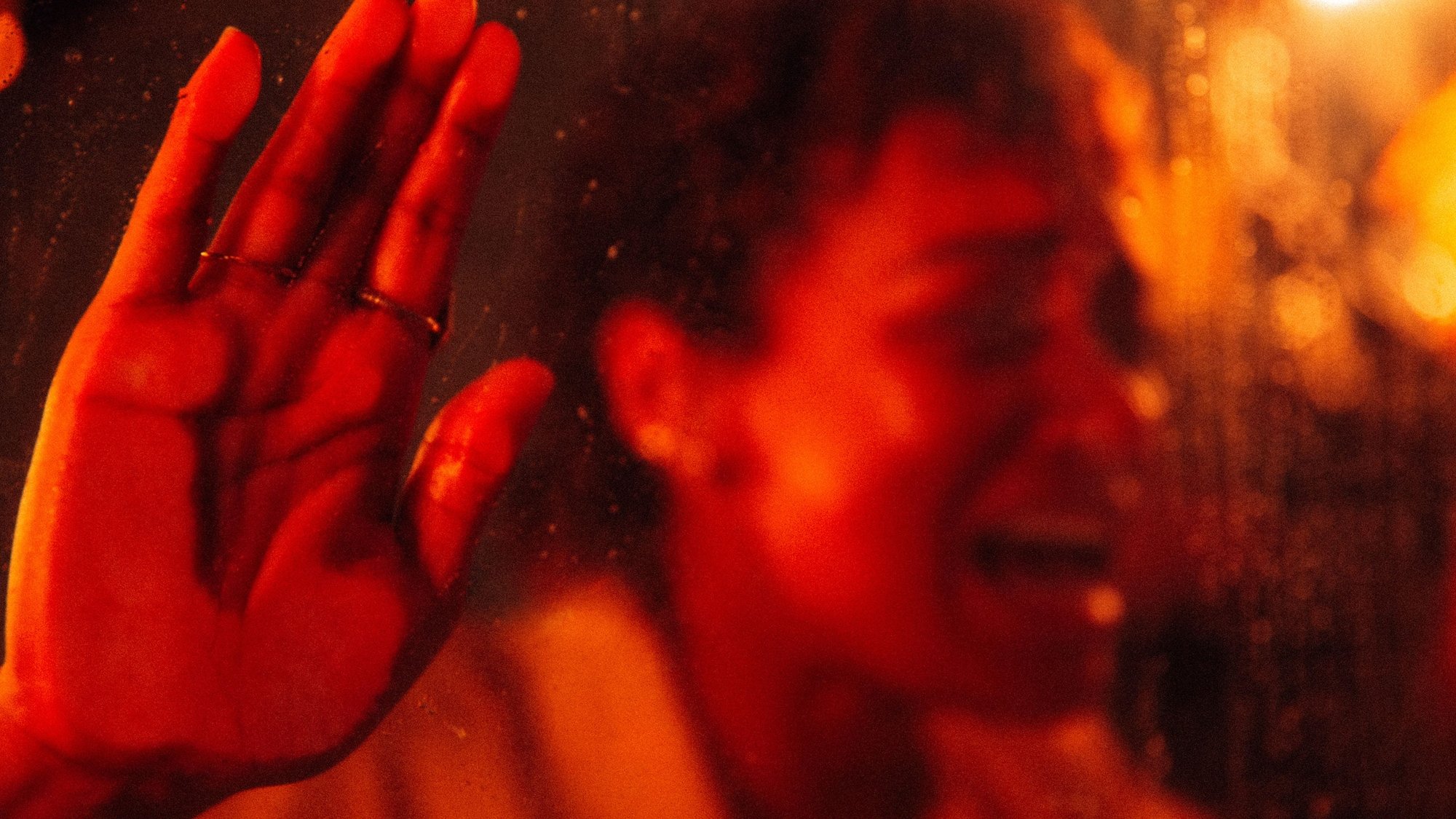
‘Talk to Me’ Movie Review [Sundance 2023]: A Viral Séance Challenge Leads to Disturbing Terror
The horror genre has always found innovative ways to play with generational culture shifts, finding a way to keep its finger on the pulse of modern struggle. Halina Reijn’s Bodies Bodies Bodies aptly tapped into social commentary on Gen Z, bringing a dark sense of humor to its party game-based horror antics. Now, Danny and Michael Philippou concocted the next wild horror sensation with Talk to Me.

‘Talk to Me’ shows a séance ritual goes viral

The latest social media party trend involves conjuring spirits for fun, as teenagers peer pressure one another to indulge in the paranormal ritual. Teenage Mia (Sophie Wilde) is trying to take her mind off the pain of the anniversary of her mother’s (Alexandria Steffensen) death, so she welcomes the idea of trying it out.
Mia gets together with a group of her friends to engage in a séance that requires the player to touch a sinister-looking embalmed hand. It offers them a direct link to the spirits, but there’s no telling who or what is going to answer back. The longer that the group continues to play, the more that the boundary between the worlds blurs. Mia must find a way to undo what she unleashed before it’s too late.
Teenage trauma and mercy
Talk to Me is a natural response to stupidly dangerous TikTok challenges that resulted in deaths. It provides enough room for the suspension of disbelief that these characters would actually want to interact with spirits after the horrific videos they’ve seen. Mia and her friends are playing with fire, and it’s just a matter of time before it gets out of control. The opening sequence acts as a piece of foreshadowing as to where this story could potentially go for them.
The viral séance challenge has rules in place to supposedly keep the players safe. The chosen person holds the ceramic hand and says the words “Talk to me,” but only they will see the spirit appear before them. After giving the ghost permission, it can inhabit their body, but their friends must break the bond between the person and the ceramic hand before the 90-second timer is up, or the spirit may never leave.
There are other aspects of these characters’ real world that only amplifies their terror. Mia and her father have had a complicated relationship since the death of her mother. The two-year remembrance marks a heart-achingly difficult time for the family, hoping to find solace with her friends. However, Mia has romantic feelings for her friend’s, Jade (Alexandra Jensen), religious boyfriend, Daniel (Otis Dhanji). She reassures their peers that they’re only friends, although she knows that there’s still something there. Despite their interpersonal drama, they’ll all have to work together if they hope to fix the problems they created.
‘Talk to Me’ is a bloody, scary good time
Talk to Me centers a new generation of protagonists and their culture, but it doesn’t forget horror genre influences of the past. It instantly brings Sam Raimi’s The Evil Dead to mind, but it also introduces James Wan’s Insidious into the mix. The Philippous aren’t reinventing the genre here, still abiding by many recognizable tropes. Nevertheless, they discover new ways to freshen it up with fun gags and absurdly gory moments.
The first two-thirds of Talk to Me are thoroughly tense, especially through some particularly disturbing séance sequences. However, the film somewhat fizzles out in the third act, losing the edge that made it scary before. The sub-plot involving Mia’s family falls flat, unable to stick the landing of the buildup, even though Wilde turns in a quality leading performance.
Even so, there’s plenty to love about this violent foray into the world of the spirits. Talk to Me is a grisly spine-chiller with its own clever, wicked touch. The Philippous also have something to say about social media culture, peer pressure, trauma, and mercy, which is social commentary that the genre was made for.


